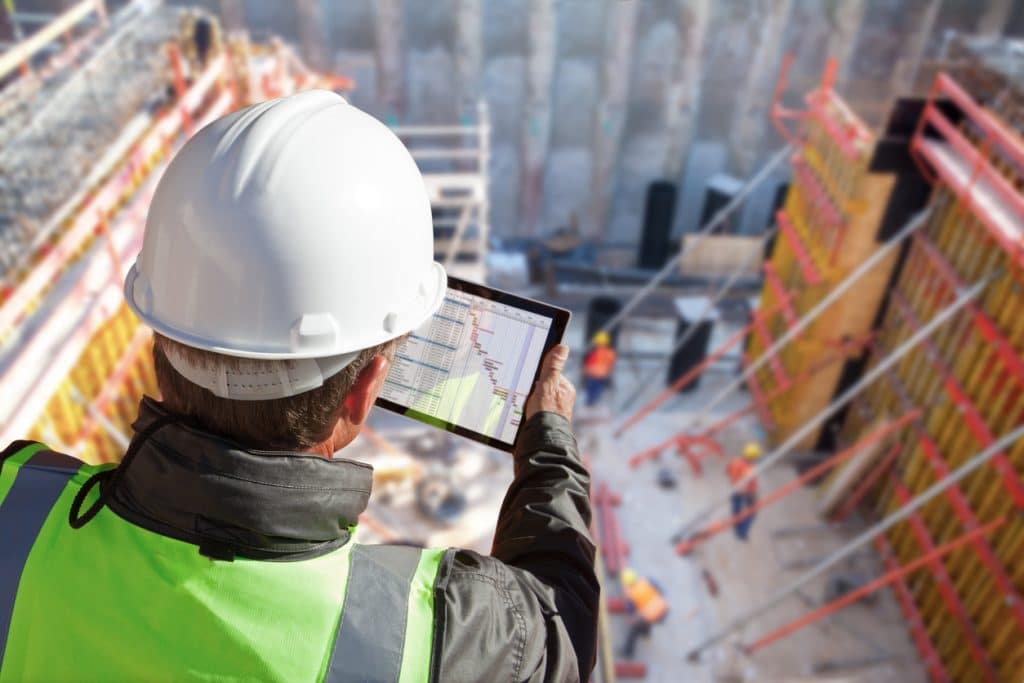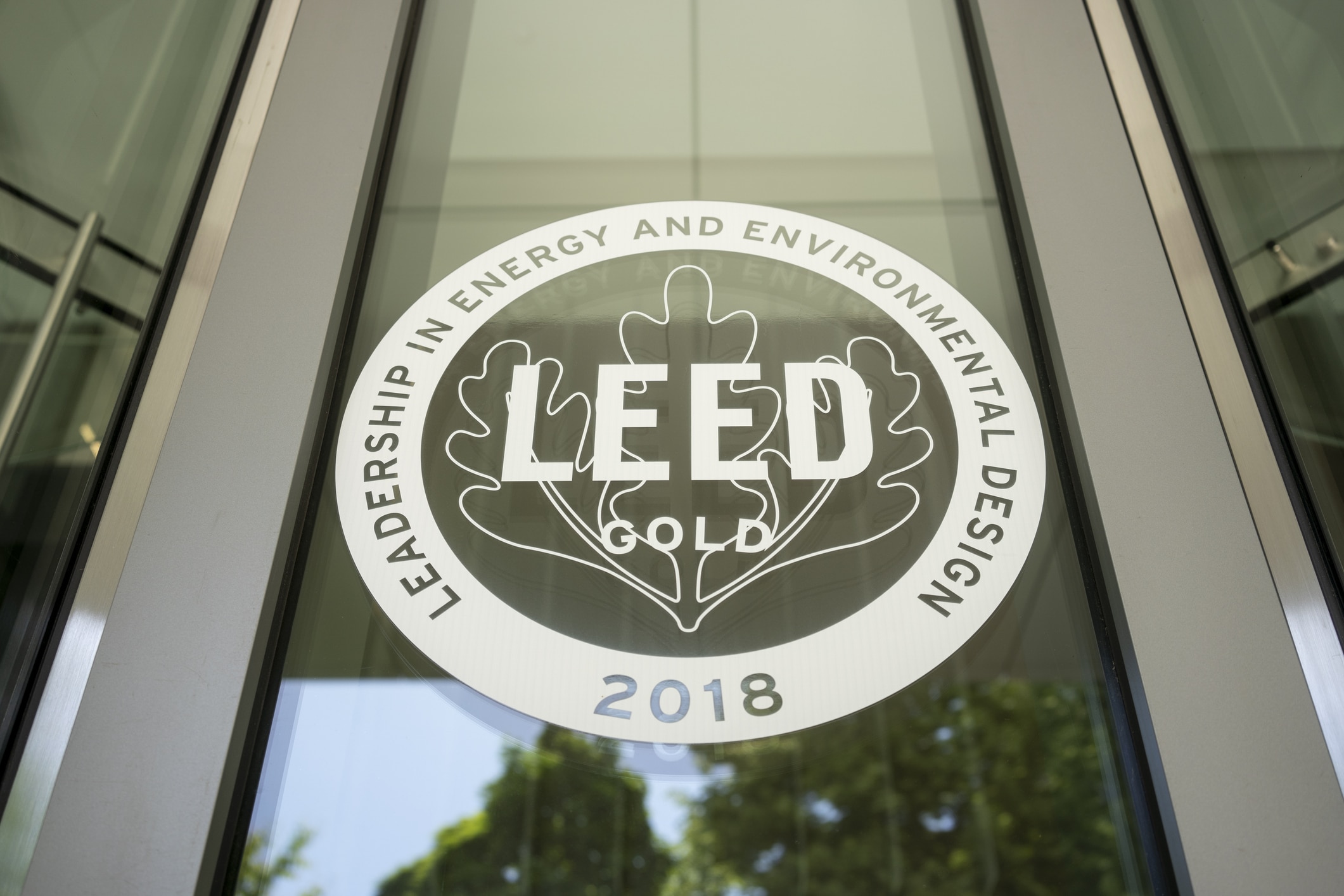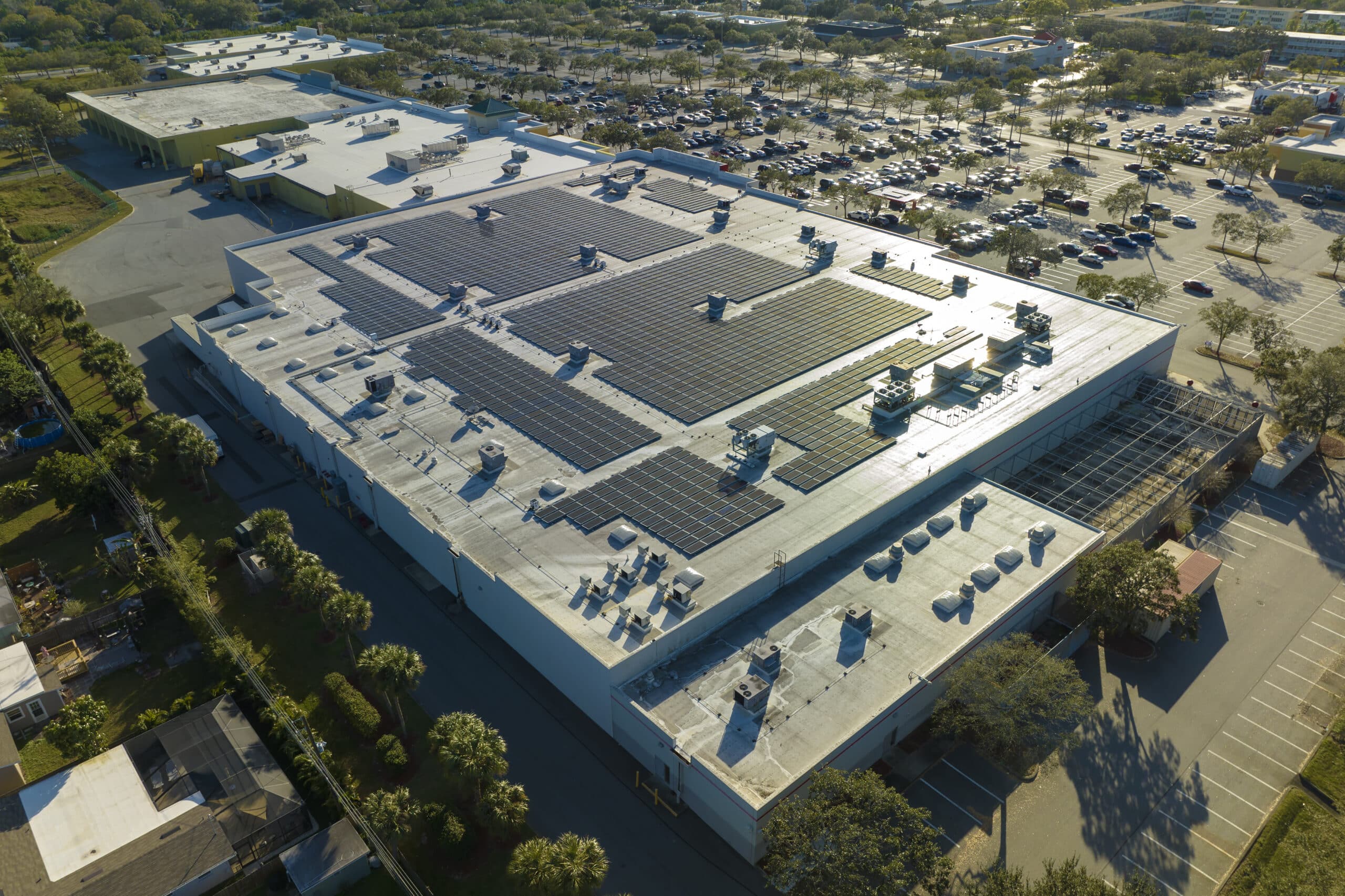Sustainability has become a cornerstone of modern commercial construction, and achieving higher building standards is…

Sustainability is becoming increasingly significant in the commercial construction industry, driven by the growing awareness of environmental impact and the need for eco-friendly practices. Businesses recognize how integrating sustainable elements into their construction projects benefits the environment and leads to cost savings, enhanced building performance, and improved corporate reputation.
In this post, we explore the role of sustainability in commercial construction and provide practical insights on how to incorporate eco-friendly elements into your projects. As a general contracting firm, Schonsheck is dedicated to promoting sustainable construction practices that meet the evolving needs of modern businesses.
What is Sustainable Construction?
Sustainable construction focuses on reducing the environmental impact of building projects while enhancing their economic and social benefits. Here are some of the core principles of this type of construction:
- Environmental Responsibility: Sustainable construction prioritizes the use of materials and processes that minimize harm to the environment. This includes reducing waste, conserving natural resources, and minimizing carbon emissions.
- Economic Efficiency: By implementing sustainable practices, businesses can reduce operating costs through energy and water savings, lower maintenance expenses, and increase property value. Sustainable buildings often qualify for tax incentives and rebates, enhancing their economic benefits.
- Social Benefits: Sustainable construction also considers the well-being of building occupants and the surrounding community. This includes improving indoor air quality, increasing access to natural light, and creating healthy, comfortable living and working environments.
Along with the benefits listed above, businesses can create buildings that are more energy-efficient, environmentally friendly, and cost-effective over their lifecycle by adopting sustainable practices.
Sustainable Building Materials & Technologies
By incorporating these eco-friendly elements, businesses can create structures that are both environmentally responsible and economically advantageous.
Green Building Materials
One of the most significant aspects of sustainable construction is the use of green building materials. These materials are selected for their low environmental impact, durability, and ability to enhance indoor environmental quality. Using recycled materials, such as reclaimed wood, recycled metal, and recycled glass, helps reduce the demand for new raw materials and minimizes waste.
Materials derived from renewable resources, such as bamboo, cork, and straw bale, are sustainable alternatives to traditional construction materials. Utilizing locally sourced materials reduces the environmental footprint associated with transportation and supports the local economy.
Energy-Efficient Technologies
Energy-efficient technologies play a crucial role in sustainable construction by reducing energy consumption and operating costs. Installing solar panels allows businesses to generate their own renewable energy, reducing reliance on fossil fuels and decreasing utility costs.
Modern HVAC systems are designed to maximize energy efficiency while maintaining optimal indoor air quality. Smart building management systems allow for real-time monitoring and control of energy use. These systems can optimize lighting, heating, cooling, and other building operations based on occupancy and usage patterns, leading to significant energy savings.
Water Conservation Techniques
Collecting and storing rainwater for non-potable uses, such as irrigation and toilet flushing, helps conserve potable water and reduces the demand for municipal water supplies. Greywater systems treat and reuse wastewater from sinks, showers, and washing machines for non-potable purposes. Installing low-flow faucets, showerheads, and toilets reduces water usage without compromising performance.
Strategies for Sustainability
Implementing sustainable practices in commercial construction requires a strategic approach that involves careful planning, stakeholder engagement, and a commitment to continuous improvement. Some practical strategies for integrating sustainability into your construction projects include:
- Sustainability Assessments: Evaluate resource consumption, waste generation, and emissions. Identify strategies to minimize impacts. Assess initial costs and long-term savings, including ROI for sustainable technologies and materials. Consider health and well-being benefits for occupants and the community.
- Green Certifications: LEED Certification is a recognized certification evaluating sustainability across criteria like energy efficiency and water conservation. BREEAM Certification assesses sustainability based on performance benchmarks and recognizes sustainable efforts.
- Engaging Stakeholders: Foster collaboration among architects, engineers, and contractors to integrate sustainability into every project. Inform clients about the benefits, long-term savings, and potential incentives of sustainable practices. Engage with the community to understand their sustainability priorities and communicate project benefits.
By leveraging strategies like these, businesses can effectively integrate sustainability into their commercial construction projects, leading to long-term benefits for the environment, economy, and society. As a commercial building contractor, Schonsheck is committed to guiding clients through implementing sustainable practices, ensuring successful and impactful outcomes.
Building a Sustainable Future
By incorporating eco-friendly practices, businesses can significantly reduce their environmental footprint, lower operating costs, and enhance building performance. Key strategies include using green building materials made from recycled and renewable resources, adopting energy-efficient technologies like smart building systems, and implementing water conservation techniques like rainwater harvesting and greywater systems.
Additionally, conducting comprehensive sustainability assessments, obtaining green certifications, and engaging stakeholders throughout the project are crucial to achieving sustainability goals. These practices contribute to environmental preservation and offer economic and social benefits, such as improved indoor air quality and community well-being.
Sustainable construction is essential to the long-term viability of commercial projects. Schonsheck’s expertise in sustainable construction ensures every project is designed and executed with a commitment to sustainability. By integrating these practices, businesses can build a sustainable future that benefits their operations and the planet.
Explore Sustainable Construction in Michigan
At Schonsheck, we are dedicated to providing top-tier commercial construction services with a strong emphasis on sustainability. Our experienced team utilizes green building materials, energy-efficient technologies, and water conservation methods to create eco-friendly and cost-effective projects. We believe in the power of collaboration and work closely with clients to educate them on the benefits of sustainable construction to help them make informed decisions.
Whether you’re planning a new build or renovating an existing space, Schonsheck is your trusted partner for sustainable construction in Michigan. Contact us online or call us at 248-669-8800 to learn more about our sustainable construction services and how we can help you achieve your sustainability goals. Together, we can build a greener, more sustainable future for your business and the community.



